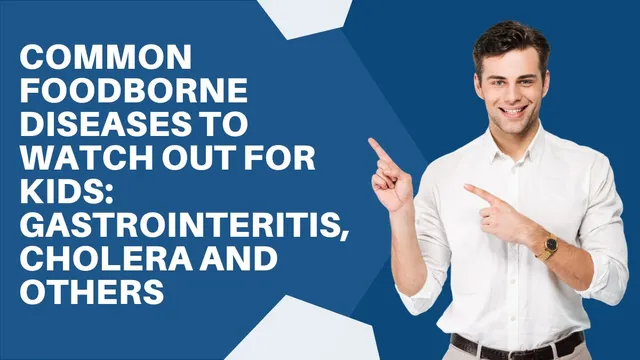- By Priyanka Munshi
- Thu, 11 Jul 2024 04:42 PM (IST)
- Source:JND
It is especially important for parents to be aware of frequent foodborne infections in children due to the higher risk of contamination and infection during the monsoon season. Foodborne infections are more common during this time because of the warm, humid conditions that foster the growth of bacteria, viruses, and parasites.
Children are particularly susceptible since they have developing immune systems, making it harder for them to fight off diseases. This time of year, gastroenteritis—which can be brought on by germs like Shigella, Salmonella, and E. coli—is a common foodborne illness.
The symptoms of these illnesses can include fever, stomach cramps, vomiting, and diarrhea. In small children, these symptoms can be quite severe and even fatal. Parents and caregivers can take preventive actions, such as ensuring proper food hygiene, avoiding street food, thoroughly cleaning fruits and vegetables, and ensuring drinking water is safe and clean, by being aware of these diseases.
In a conversation with Jagran English, Dr. D. Srikanth, a senior consultant pediatrician and neonatologist at Yashoda Hospitals in Hyderabad, discussed the common foodborne diseases to watch out for in children.
According to Dr. D. Srikanth, pediatric gastrointestinal disorders are a significant concern due to their impact on children's health and development. Among these, pediatric gastroenteritis, cholera, and irritable bowel syndrome are three distinct conditions that vary in etiology, presentation, and management.
Pediatric Gastroenteritis:
Inflammation of the stomach and intestine is commonly caused by infectious agents like viruses (e.g., rotavirus, norovirus), bacteria (e.g., E. coli, Salmonella), and parasites. It typically presents with an acute onset of diarrhea, which can be watery or bloody, accompanied by vomiting, fever, and dehydration. Dehydration is a common concern for infants and young children. Management focuses on rehydration therapy, either ORS or IV fluids in severe dehydration, zinc supplementation, and probiotics. Antibiotics are usually reserved for bacterial infections with severe symptoms or specific pathogens.
Cholera:
Cholera is a severe diarrheal illness caused by the bacterium Vibrio cholerae. The bacteria produce cholera toxins, which secrete a large volume of water and electrolytes into the intestines, causing severe dehydration and dyselectrolytemia. Management focuses on:
- Rehydration: Rapid fluid boluses in cases of shock, IV fluid for dehydration correction, and ORS.
- Antibiotics: They can reduce the duration and volume of diarrhea. Effective antibiotics include azithromycin, doxycycline, and ciprofloxacin.
- Zinc supplementation, probiotics, and regular monitoring.
- Isolation of the child and infection control.
Irritable Bowel Syndrome (IBS):
IBS is a common functional gastrointestinal disorder characterized by chronic or recurrent abdominal pain or discomfort with altered bowel habits. It is more complex due to its multifactorial nature. Early identification and management can prevent chronic distress and complications. Promoting a balanced diet, stress management, and a healthy lifestyle can reduce the risk and severity of IBS. While acute infectious diseases like gastroenteritis and cholera require immediate and life-saving interventions, IBS demands a holistic and patient-centered approach to improve long-term outcomes.
What Are It's Preventive Measures?
- Vaccination: Rotavirus
- Safe food and water
- Proper food handling
- Good hygiene practices
- Proper nutrition and hydration

